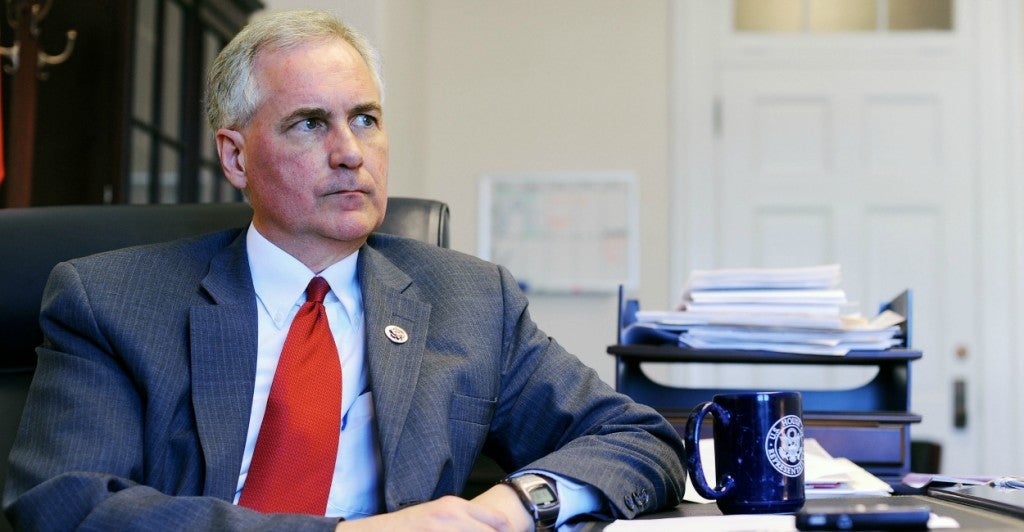A California Republican has resigned from the conservative House Freedom Caucus, arguing that the group’s tactics have done more harm to conservative policy than good.
In a letter delivered to Freedom Caucus Chairman Jim Jordan, R-Ohio, Rep. Tom McClintock criticized the strategy used by the conservative group in fights over Planned Parenthood, immigration, and trade.
“I know that every member of the [House Freedom Caucus] sincerely supports these principles, but as I have expressed on many occasions during our meetings, I believe the tactics the HFC has employed have repeatedly undermined the House’s ability to advance them,” McClintock wrote.
In an interview with The Daily Signal, House Freedom Caucus member Rep. Tim Huelskamp, R-Kans., praised McClintock’s conservatism but objected to his criticism of the group’s tactics. “There’s always an excuse to do nothing against our leadership, and some folks are uncomfortable challenging leadership and the status quo,” he said.
McClintock pointed to four examples of policy disagreements during which the Freedom Caucus members voted alongside House Democrats to defeat legislation, including short-term funding for the Department of Homeland Security, Trade Promotion Authority, and a resolution of disapproval on President Obama’s nuclear deal with Iran.
The California Republican also pointed to the current debate over defunding Planned Parenthood, which could lead to a government shutdown, as another point of contention between him and House Freedom Caucus members.
A leading member of the group, Rep. Mark Meadows, R-N.C., recently made headway by authoring a motion to unseat John Boehner as speaker.
McClintock did not vote against Boehner in two previous attempts to oust the speaker.
The Freedom Caucus’s more than 40 conservative members vowed last week to oppose any government spending bill that funds Planned Parenthood. McClintock criticized the group’s position on the issue, saying it “promises only to shield Senate Democrats from their responsibility for a government shutdown.”
“A common theme through each of these incidents is a willingness—indeed, an eagerness—to strip the House Republican majority of its ability to set the House agenda by combining with House Democrats on procedural motions,” he said. “As a result, it has thwarted vital conservative policy objectives and unwittingly became [House Minority Leader] Nancy Pelosi’s tactical ally.”
In a statement, Jordan praised McClintock for his commitment to upholding conservative principles.
“Tom is a principled conservative and a valuable member of the House Republican Conference,” he said. “The House Freedom Caucus looks forward to continuing to work with him, as well as every one of our colleagues, to give a voice to countless Americans who feel that Washington does not represent them.”
Huelskamp said House leadership on both sides of the aisle frequently act in contrast to their respective parties’ policy positions, but he told The Daily Signal his constituents expect Republicans to push back.
“Where we’ve been hurt is where [House Speaker] John Boehner and [House Minority Leader] Nancy Pelosi violate the Hastert rule, and that’s happened nine times in the last four years,” Huelskamp said.
The Hastert rule requires a majority vote from the majority party in the House to advance legislation.
“You know how the process works,” he added. “The minority is always going to vote no. We’ve had deal after deal after deal forced. Tom’s position is at least we’ve got one-quarter part of a loaf, but what I’ve heard in Kansas is that’s not good enough. Just because the president threatens a showdown doesn’t mean we shy away from the battle.”
The House Freedom Caucus emerged earlier this year as a policy alternative to the Republican Study Committee, a decades-old conservative group that lobbies GOP leadership to move policy rightward.
While members can be active in both groups, the Freedom Caucus is invite-only.
